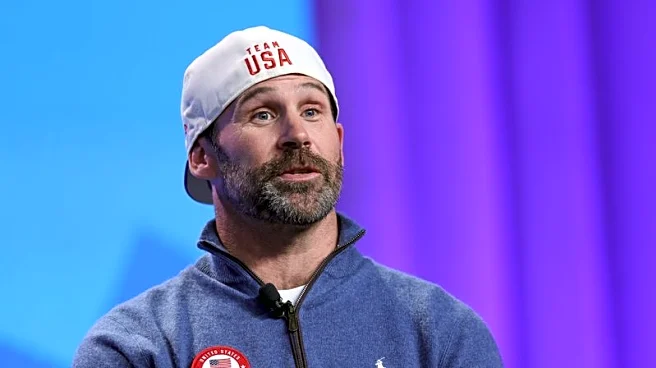What's Happening?
Dr. Matt Kaeberlein, a longevity expert and founder of healthtech company Optispan, emphasizes the detrimental effects of chronic stress on aging and health. He highlights that chronic stress accelerates aging and increases the risk of age-related diseases. Kaeberlein suggests two primary methods to manage stress: regular exercise, particularly weightlifting, and limiting social media usage. He notes that exercise is a powerful stress management tool, while social media can contribute to stress through the constant exposure to negative information. Kaeberlein advises reducing social media consumption to mitigate stress and its harmful effects.
Why It's Important?
Chronic stress is a significant health concern as it can lead to accelerated aging and a higher risk of developing age-related diseases. By advocating for exercise and reduced social media usage, Kaeberlein provides practical strategies to manage stress, potentially improving public health outcomes. These recommendations are particularly relevant in today's digital age, where individuals are frequently exposed to overwhelming information and stimuli. Implementing these strategies could lead to healthier lifestyles and reduced healthcare costs associated with stress-related conditions.
What's Next?
Individuals may consider adopting Kaeberlein's strategies to manage stress, potentially leading to broader societal shifts in lifestyle habits. Healthcare professionals might increasingly recommend exercise and social media limitation as part of stress management plans. Additionally, tech companies could explore ways to design social media platforms that minimize stress-inducing content. As awareness of stress's impact on health grows, there may be increased demand for tools and devices that help monitor stress levels, such as heart rate variability trackers.
Beyond the Headlines
The emphasis on stress management highlights the intersection of mental health and physical well-being. It underscores the importance of holistic approaches to health that consider both psychological and physiological factors. This perspective may influence future research and public health policies, encouraging a more integrated approach to health care that addresses the root causes of stress and its effects on aging.











